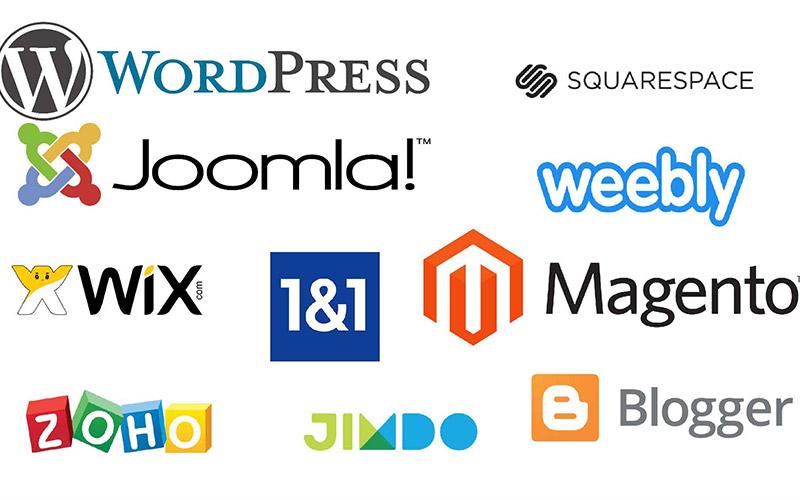How to Choose the Right Website Platform for Your Business
Launching a website is a pivotal step for any business aiming to establish an online presence, attract customers, and grow revenue. But with so many website platforms available-from WordPress and Shopify to Wix and Squarespace-choosing the right one can feel overwhelming. Selecting the ideal website platform ensures your site is scalable, easy to manage, and optimized for both visitors and search engines. In this article, we’ll guide you through the essential criteria for choosing a website platform that perfectly fits your business needs.
Why Choosing the Right Website Platform Matters
The platform you choose forms the foundation of your online presence. The wrong choice can limit growth, frustrate users, and hurt your search engine rankings. Conversely, the right platform will provide:
- Flexibility: To customize your site’s design and functionality
- SEO-friendly features: To help your business rank higher on Google
- Ease of use: So you can maintain your site without technical headaches
- Scalability: To grow with your business demands
- Security: To protect your data and your visitors
Key Factors to Consider When Choosing a Website Platform
1. Business Goals and Website Purpose
Start by asking what you want your website to achieve. Are you selling products, showcasing your portfolio, or providing information? Different platforms excel at various types of websites:
- E-commerce: Shopify, WooCommerce (WordPress), BigCommerce
- Blogs & Content Marketing: WordPress, Ghost
- Small Business & Portfolios: Squarespace, Wix
2. Ease of Use and Management
If you’re not tech-savvy, ease of use becomes crucial. Platforms with drag-and-drop editors like Wix or Squarespace allow non-technical users to quickly build and update pages. WordPress offers greater customization but has a steeper learning curve and requires management of hosting and security.
3. Customization and Design Flexibility
Consider how much control you want over your website’s look and feel. Platforms like WordPress have thousands of themes and plugins, offering near-limitless customization. Others like Shopify focus more on streamlined e-commerce templates but can be extended with apps.
4. SEO Capabilities
Optimizing your website for search engines is critical to attracting organic traffic. Look for platforms that:
- Allow editing of meta titles & descriptions
- Generate SEO-friendly URLs
- Support plugins/tools like Yoast SEO (WordPress) or built-in SEO tools (Squarespace)
5. Scalability & Growth Potential
Think long-term. Will the platform support your growing inventory, traffic, or content? Consider bandwidth, storage, performance, and pricing for advanced features or upgrades.
6. Budget Constraints
Website platform costs can vary widely:
- Subscription-based platforms (Wix, Squarespace) charge monthly fees that include hosting and support.
- Open-source platforms (WordPress) are free but require paying for domain, hosting, and often professional support.
Popular Website Platforms Compared
| Platform | Best For | Ease of Use | Customization | SEO Tools | Price Range |
|---|---|---|---|---|---|
| WordPress.org | Blogs, Large sites, Full control | Medium (requires hosting setup) | Very High (themes & plugins) | Extensive (via plugins) | Free core + Hosting |
| Shopify | E-commerce stores | High (intuitive dashboard) | Moderate (themes & apps) | Good (built-in tools) | $29 – $299/month |
| Squarespace | Small business, portfolios | Very High (drag & drop) | Moderate (limited coding) | Good (built-in) | $16 – $49/month |
| Wix | Small to medium sites | Very High (drag & drop) | Moderate (apps & templates) | Basic SEO tools | $14 – $49/month |
| BigCommerce | Mid-large e-commerce | High | Good (themes & apps) | Strong SEO features | $29.95 – $299.95/month |
Benefits of Choosing the Right Website Platform
- Improved User Experience: A streamlined website attracts and retains visitors.
- Better Search Rankings: SEO-friendly platforms help drive organic traffic and leads.
- Cost Efficiency: Avoid costly redesigns or platform migrations down the line.
- Enhanced Security: Trusted platforms offer regular updates and security protocols.
- Faster Time to Market: Easier platforms let you launch your website quicker.
Practical Tips for Selecting Your Website Platform
- Define Your Goals: Make a list of must-have features before evaluating platforms.
- Test Demo Versions: Most platforms offer free trials-use them to explore intuitiveness and tools.
- Check Support and Community: Good customer support and a strong user community can be a lifesaver.
- Evaluate Mobile-Friendliness: Ensure your platform supports responsive, mobile-first designs.
- Review Integration Options: Can the platform integrate with the tools you use (email marketing, CRM, analytics)?
Case Study: How a Small Business Found Success with WordPress
Business: EcoCrafts, an online seller of handmade sustainable products
Challenge: Needed a branded website with strong storytelling, blog, and e-commerce features without breaking the bank.
Solution: Chose WordPress with WooCommerce, using customizable themes and SEO plugins.
Outcome: Within 6 months, EcoCrafts saw a 120% increase in organic traffic and 80% more sales, thanks to rich content and optimized product pages.
Conclusion
Choosing the right website platform for your business is a strategic decision that impacts every aspect of your online success. By carefully evaluating your business goals, budget, technical skills, and growth plans, you can find a platform that meets your needs-whether it’s the powerful flexibility of WordPress, the streamlined commerce of Shopify, or the user-friendly drag-and-drop builders like Squarespace and Wix.
Remember, the best platform for your business is one that balances usability, scalability, and SEO capabilities, empowering you to create a professional website that attracts visitors and converts them into loyal customers.
Start your journey today by exploring your options and choosing the platform that will help your business thrive online!











